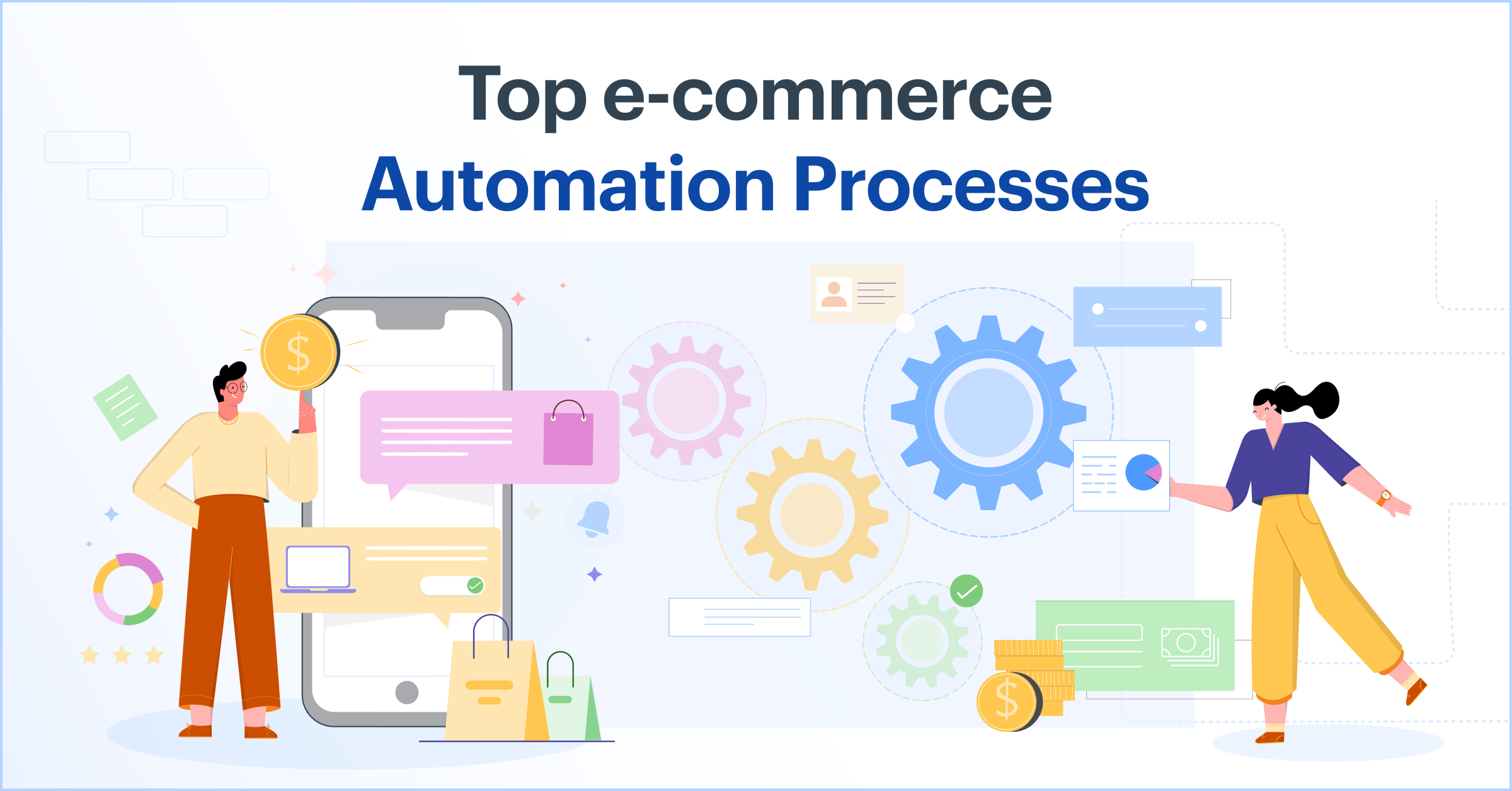The Role Of Automation In Ecommerce: How Agencies Make It Work?

In the rapidly evolving realm of e-commerce, efficiency and personalization are now expected rather than optional. The modern consumer demands individualized experiences, prompt follow-ups, and smooth interactions at all digital touchpoints. Meeting these demands at scale is impossible without automation. That’s where a skilled ecommerce email marketing agency becomes essential, helping brands unlock the full power of automation to increase revenue, boost retention, and enhance customer experience.
Why Automation Matters In Ecommerce?
The average ecommerce customer journey involves multiple stages: discovery, consideration, purchase, post-sale engagement, and retention. Manual outreach at each stage is inefficient, inconsistent, and prone to human error. Automation streamlines these efforts by delivering the right message at the right time, with minimal manual input.
For e-commerce companies, this not only saves time but also guarantees that no client is overlooked. From welcoming new subscribers to reminding customers of an abandoned cart, automation bridges the gap between intent and action.
Email Automation: The Silent Sales Machine
One of the best e-commerce marketing channels is still email. One of the best strategies for fostering client relationships and encouraging constant interaction throughout the purchasing process is still email marketing.
An ecommerce email marketing agency designs workflows that respond to customer behavior. For example:
- Welcome Series: Triggered when a user subscribes, introducing them to the brand and offering incentives to shop.
- Abandoned Cart Reminders: Sent automatically when someone leaves items behind, often increasing conversion rates by 20% or more.
- Post-Purchase Follow-Ups: Include thank-you notes, product recommendations, or requests for reviews.
- Re-Engagement Campaigns: Target dormant customers with exclusive offers to win back their attention.
These campaigns run in the background, generating revenue without the need for daily input.
Personalization At Scale
Automation isn’t just about timing—it’s also about relevance. Modern email platforms allow agencies to segment audiences and personalize messages using customer data. Ecommerce email marketing agencies can generate dynamic content segments that fluctuate in response to:
Customer name.
- Purchase history.
- Browsing behavior.
- Location.
- Time of last purchase.
For example, a returning customer might see restocks of a previously viewed product, while a new subscriber might receive a discount on a popular item. This level of personalization builds trust, increases engagement, and drives more conversions.
Multi-Channel Integration
These days, consumers engage with brands through a variety of platforms, including SMS, email, websites, and social media. Automation helps unify those channels into a cohesive experience. Many ecommerce email marketing agencies specialize in integrating platforms like klaviyo, mailchimp, and hubspot with ecommerce platforms such as shopify or woocommerce.
This enables real-time data syncing, allowing emails to reflect the latest customer activity. You won’t follow up with someone who buys anything from your website to ask them to buy it again. Instead, they might get a thank-you message with product care tips or a “you may also like” recommendation.
Testing And Optimization
One of the biggest advantages of automation is its ability to be tested and refined over time. A professional agency doesn’t just set and forget automated campaigns—they continuously monitor open rates, click-through rates, conversions, and unsubscribe rates.
To find out what appeals to various segments the most, they A/B test subject lines, content, timing, and frequency. This data-driven approach helps improve performance and ensures your automated strategy evolves alongside your customer base.
Compliance And Deliverability
E-commerce companies now have to adhere to stringent compliance rules due to the emergence of privacy laws like CAN-SPAM and GDPR. Agencies ensure your automated email flows follow legal best practices, such as including unsubscribe options, proper data usage, and permission-based marketing.
They also help optimize deliverability—making sure your emails land in inboxes, not spam folders—by managing sender reputation, domain authentication, and engagement metrics.
Final Thoughts
Automation is no longer just a nice-to-have for ecommerce—it’s the backbone of a scalable, customer-centric strategy. Automation becomes more than just a time-saver when it is executed by a knowledgeable e-commerce email marketing business; it becomes a source of revenue.
From smart workflows and personalized messaging to multi-channel integration and ongoing optimization, agencies know how to make automation work for your brand. The result? Stronger relationships, higher conversions, and a customer journey that feels effortless, for both you and your audience.
